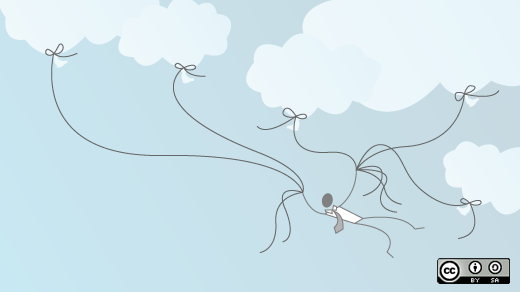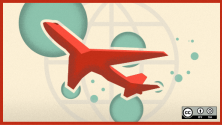If you haven't heard a keynote about the wonders of the cloud, you haven't been to an open source conference lately. But Mårten Mickos' LinuxCon cloud keynote was more than that--it was really a freedom keynote.
"FOSS has an 'F' as in freedom, and in fun, and the future," Mickos said. "Many of us do it because of 'F' as in fun. But we have a duty to civilization to protect freedom--to protect that what we open, others don't close."
Any massive shift in any industry results from other, underlying shifts. In the case of cloud, Mickos says, the underlying shift is the number of connected devices. There are five billion mobile phones in the world. On top of that, there are connected GPS devices and e-readers and tablets. The number of connected devices is predicted to quickly grow to one trillion. That means everyone will have a lot of connected devices, and all of those connected devices will have a lot of connected devices. All that connectivity can result only in unpredictability because of variable use. And the only way to serve a load that variable is with cloud infrastructure.
"I think it's safe to say that in cloud, open is the preferred raw material," Mickos said. All of the already well-known cloud services are using open source as their building blocks, which is an early victory for openness. But there's a followup challenge: will open also be the preferred delivery method? Will you have the right to control of your own data? "We don't know yet," Mickos continued. "We should make sure it's fun, but we should also protect the freedoms.
Two days ago in his own keynote, Linus Torvalds said the GPL was vital to the success of Linux because it kept the forks close to each other--share and share alike. But today is no longer just about the code. It's about APIs and services and data. How do you define "share and share alike" in a cloud context? Again, we don't know yet, but it's important to figure out. Ensuring openness and transparency beyond the code will be critical to success.
During Torvalds' talk, he joked that we would call the next version of the kernel "Linux 3.11 for Workgroups. "It's fun to joke about that because that's the old battle," Mickos said. "We should leave those guys--they're losing anyhow. It's no fun to compete against the old guys because they're so old by now." It's time to turn the other way and look not at openness as a disruptor, but at openness as the default for everything, for the future.
Mickos called for the audience to lead that charge. "I know you love coding--and complaining about your friends' code," he joked. "But I want you to think about freedom and how we can protect it going forward. If we speak up, governments will listen. Organizations will listen. Companies will listen." We, as members of open source communities and the greater, single open source community, must step up and ensure the next generation can enjoy in the cloud the same freedoms that we've had. "Open source has gone from being the disruptor of the old to the innovator of the new, and there's no limit to what we can do in this great new world," Mickos concluded.






1 Comment